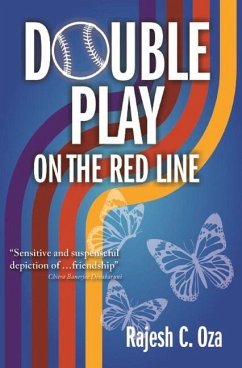Traveling up and down Chicago's elevated train system's Red Line, Ratan, a professor of sports journalism, puzzles through a near-lynching of a peanut vendor at Wrigley Field. At first, the peanut vendor, Ernie, is hesitant to share much. What he does share includes the following: he played for the Kansas City Monarchs of the Negro Leagues; he served his country's military in the Korean War; after the war, his smooth-fielding and power-hitting attracted the attention of the Cubs ownership; he was destined to be one of the first ten Black baseball players in the Major Leagues at a time in America's history when black lives mattered only so far as they entertained whites or enhanced the economic value of the country's capitalist engine; and he never played a single game in Wrigley Field because he was convicted of murder.
Bitte wählen Sie Ihr Anliegen aus.
Rechnungen
Retourenschein anfordern
Bestellstatus
Storno








